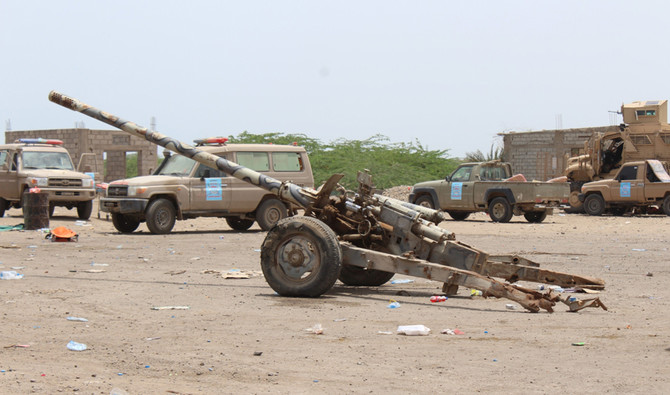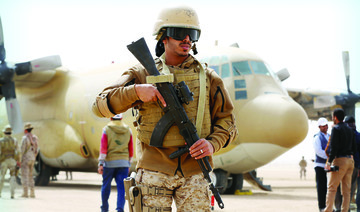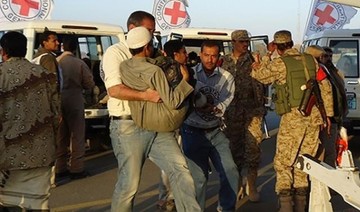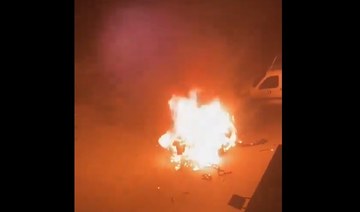WASHINGTON: A UN peace plan for Yemen calls on the Houthi movement to give up its ballistic missiles in return for an end to a bombing campaign against it by a Saudi-led coalition and a transitional governance agreement, according to a draft of the document and sources.
The plan, which has not been made public and could be modified, is the latest effort to end Yemen’s three-year-old civil war, which has spawned one of the world’s worst humanitarian crises.
The conflict pits the Iran-aligned Houthis, who took control of the capital Sanaa in 2014, against other Yemeni forces backed by a coalition loyal to exiled President Abed Rabbo Mansour Hadi and led by US allies Saudi Arabia and the UAE.
The coalition fears the Houthis are part of a regional power grab by Tehran.
Previous efforts to end the conflict, which according to the UN has killed more than 10,000 people, have failed. It is unclear whether the new plan will fare any better given the divergent interests of fighters on the ground and international backers.
A draft document seen by Reuters and confirmed by two sources familiar with it says that as a step toward new security arrangements, “heavy and medium weapons including ballistic missiles shall be handed over by non-state military actors in an orderly and planned fashion.”
“No armed groups shall be exempt from disarmament,” it says.
The sources, who spoke on condition of anonymity, confirmed that the language included the Houthis, who have launched ballistic missiles at neighboring Saudi Arabia.
The document also cites plans to create a transitional government, in which “political components shall be adequately represented,” in an apparent nod to the Houthis, who would be unlikely to cede Sanaa without participation in a future government.
“The intention is to link security and political aspects starting with a cessation of fighting...then to move toward a withdrawal of forces and the formation of a national unity government. This last objective could possibly be the hardest,” one of the sources said.
The peace plan was drafted by special UN envoy Martin Griffiths, who is due to present a “framework for negotiations” in Yemen by mid-June.
Cautious welcome
A Houthi official cautiously welcomed the UN efforts, describing a cease-fire as the first building block in the political process.
“Our optimism will be determined by how serious and respectful the other parties are of the UN role,” the official told Reuters, noting that previous truces had failed.
Anwar Gargash, the UAE’s minister of state for foreign affairs, signaled Abu Dhabi’s desire to support Griffith’s efforts.
“Politically, there is a necessity to back the UN effort. It will ultimately mean a transition, to a new political order in Yemen. Clearly with the UN effort, the military and political process will see the Houthis pull out of urban centers,” he told UAE English-language newspaper The National.
UAE-backed Yemeni forces and the Houthis are in a standoff over the Houthi-controlled Red Sea port of Hodeidah.
The Emirati-backed Yemeni forces have moved to within 10 km of the port, a lifeline for humanitarian supplies, and Griffiths is in the Middle East working on a separate deal to stave off an assault on it.
The wider peace plan appears designed to win a quick cease-fire while leaving many thorny issues for later negotiation.
Issues such as constitutional and electoral processes, and reconciliation among the sides would be dealt with later as part of a transition agenda, it says.
The draft document calls for establishing an inclusive transition government, led by an agreed-upon prime minister, “in which political components shall be adequately represented.”
The plan offers no further detail on how much representation the Houthis might receive in such a transition government.
A national military council would oversee steps for “phased withdrawal of armed groups from specific areas” and the handover of weapons, including ballistic missiles.
UN-backed peace talks between the Houthis and the Yemeni government were last held in Kuwait in August 2016.


























